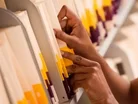Electronic media is ensuring accuracy in healthcare

Written by Jennifer Bell
Amazing progress in technology in the last two decades has brought many innovations in patient care and one of the most important is the emphasis on the storage of patient records. From dog tags to medic-alert bracelets and laminated wallet cards; throughout history, most people have worn or carried their critical medical information with them wherever they go. This may never change. However, what is changing is the way that doctors and other healthcare professionals are collecting and recording patient’s medical records.
Traditionally, tasks such as maintaining records, sending in medical claim forms and scheduling appointments were performed by hand and recorded on paper. However, there are a number of healthcare organisations that are now using sophisticated electronic media to speed up these processes and ensure accuracy.
There are many hospitals and surgeries all over the world that use electronic data cards to gather, record and store patient information. Medical history and other critical data is embedded into a microchip on what is most often known as a smart card, so it can then be retrieved from anywhere in the organisation. Such a system is configured to help hospital personnel correctly identify each patient and eliminate errors. To make this possible, smart cards have a digital photograph of the cardholder and a digital signature function to firmly verify the identity of the patient.
However, each advance in technology brings new challenges. As the medical profession moves from paper to electronic storage of information, the requirement to keep patient records secure and confidential looms larger than ever before. Stringent controls must therefore be put in place to protect confidentiality, especially if this sensitive information is going to be stored online in the cloud or in a shared network.
A number of studies have been conducted into these electronic devices and researchers have found the cards can provide many benefits to both patients and providers. Results show the gadgets can shorten patient registration time by quickly and accurately collecting and processing patient information. The use of electronic cards can also eliminate paperwork and reduce clerical errors, as well as helping to connect all hospital departments to provide consistent care. They can also simplify the laborious task of filling out insurance eligibility forms and the researchers concluded that along with their multi-functional uses, patient privacy was still protected.
Mistakes occur when physicians and emergency room personnel do not have fast and easy access to the medical history of their patients. These smart cards are the perfect solution for both patients and providers and even people who travel frequently can rest easy in the knowledge that their health care facts are complete, accurate and rapidly accessible.
The benefit of patient history cards by Dr Boyd Lyles, the founding director of the Heart Health and Wellness Center, Dallas, Texas:
This article was contributed by Jennifer Bell from healthtrainingguide.com.



